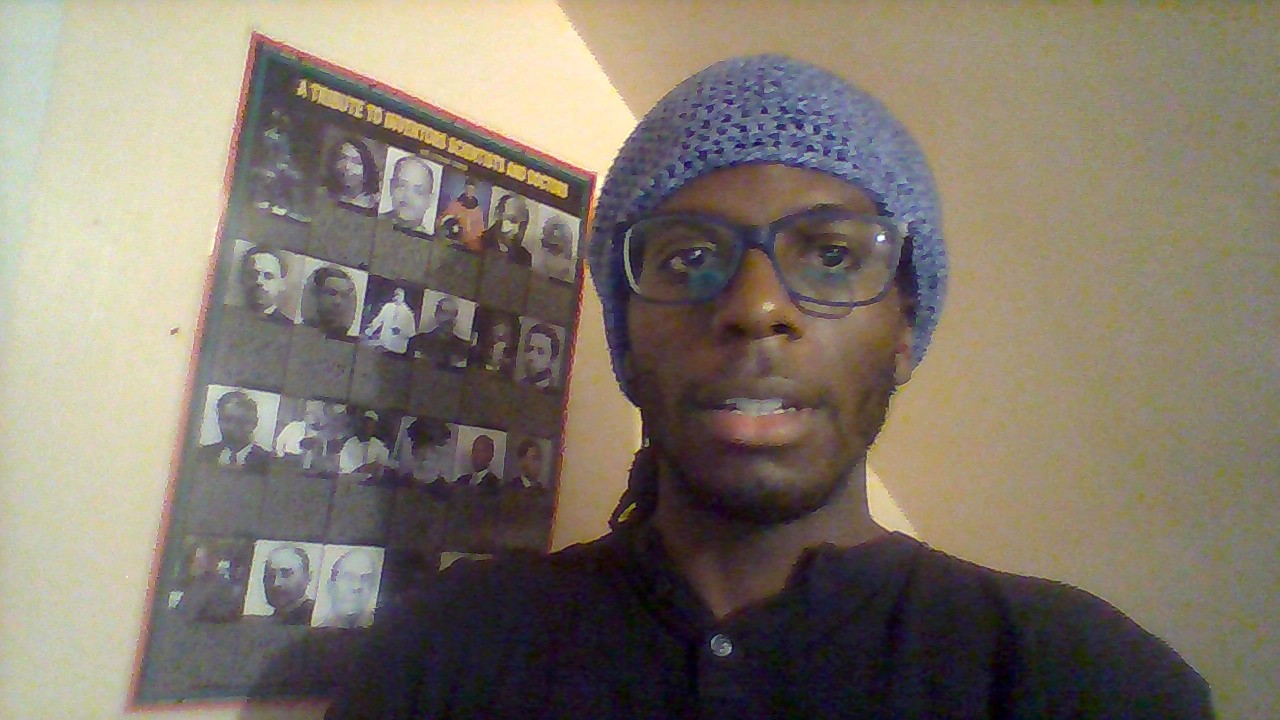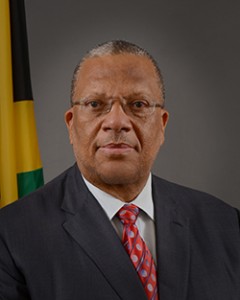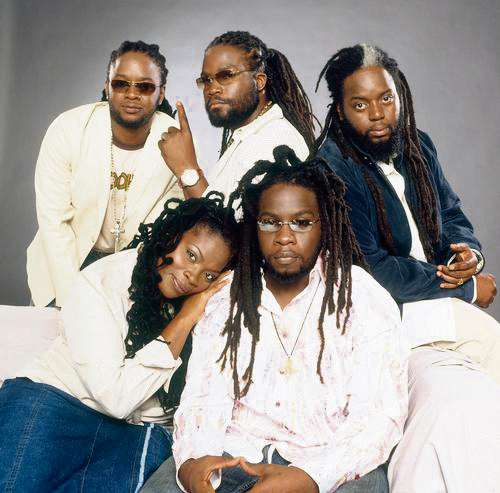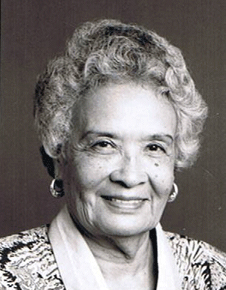Liberation Corner:
After over a year of hiatus, I am pleased to announce the revival of the Liberation Corner column. It is wonderful to be reunited with the Vision; though this time with the Canadian edition of Vision. What better way to reinstate the ethos of Liberation Corner than to interview a couple who are trying to take our health to a higher dimension of consciousness.
Many people have been complaining about the deterioration of markets such as Shepherds Bush and Ridley Road Market in Dalston, East London. For many years it has been markets that have played a pivotal role for Afrikans in Britain to purchase rare herbs such as Sour Sop Leaf, or even Irish Moss in its natural condition. Other more attainable herbs like nettle and dandelion are stocked in most major, or independent health food shops. However in the last 5 years I have seen several Afrikan health food shops emerge in Britain. Some were existing outlets and began to focus more on health food products, while others started their journey as a health food shop from inception. One such business that emerged in 2013 is Safika. I spoke to owners of the store Sister Jah Sun Ray and brother Kwame to overstand their journey.
Could you both give our readers some background knowledge about what your business entails?
Jah Sun Ray: My name is Sister Jah Sun Ray and this is Sakifa Organic Health Centre. I am responsible for managing the store. My role in terms of my professionalism is a community development work, some would call that community activist. I am also a mental health practitioner specialising in mental health and wellbeing. The work that I do is around mind, body and soul.
Sakaifa Organic Health Centre is natural earth foods for the soul. It’s about making the connection between the food that we eat and the physical impact that food has on us. We work from an Afrikan centred perspective and we pull on holistic, homeopathic, herbal roots, supplements as well as the food. We see it as a way of bringing healing to the body. Now the concept of Sakaifa in terms of wanting to create a healthy food store was born out of Kwame Butu’s vision and dream about what he intended for his people.
Kwame: I have always wanted to make a contribution towards the upliftment of our people. My journey as a young man growing up in the UK and going through all kinds of injustice and lacking opportunity. I have always wanted to do for self because that is part of Marcus Garvey’s teaching. The vision around the health foods come from me adapting a lot of healthy stuff and stay away from meat and salt and all that fancy that is shown on TV which I know is not good for you. So I had this vision to do something around food, which is healthy living because a lot of our people are dying from GM food. I was in South Afrika and talking to the people and seeing their mind set around food was more like cannibalism because of the way the prepare the food and they don’t care where the food is coming from and I was saying you are not healthy why don’t you try this and one of the things they would say is well if I don’t eat meat, I will die. I would say well I haven’t eaten meat for thirty years I haven’t died and I don’t feel any discrepancies. When I met up with my wife and I showed her the intention, she had exactly what I needed to put the package together because I always had this plan and she had the knowledge and skills to make it happen. I would say to our people to stop a minute and think about the intake of our food and go back to earth. And that is my contribution to our struggle because our struggle has different aspects. You have people who are journalists, you have people who are radicals and you have people who want to pull us together. My contribution is to pull us together through food because we do love food.
What actually inspired you to set up a health food?
Kwame: Wanting to do something for my people, within the community. Because when you look around a lot of people think that the only thing we are capable of doing is having hair shops, food like Caribbean food and not even selling the products that we eat because if you look on it other people are selling the food that we eat. Importation, we are not doing that. So that is what inspired me really.
 Jah Sun Ray: Kwame shared his vision with me because he doesn’t like eating meat. He is a vegan and one of my strengths is capturing people’s vision and facilitating that into realisation. And I did my research in terms of what other health food shops are doing, in the west end, in Croydon and out of the borough and one of the core things I recognised with those business is it was Eurocentric in terms of the foods being stocked. As Afrikans there are certain foods that are particularly good for us. Safika is an Afrikan centred store and it is about getting food that complements our type. We wanted to have an African centred food store that has foods from all over the globe, but was good for us.
Jah Sun Ray: Kwame shared his vision with me because he doesn’t like eating meat. He is a vegan and one of my strengths is capturing people’s vision and facilitating that into realisation. And I did my research in terms of what other health food shops are doing, in the west end, in Croydon and out of the borough and one of the core things I recognised with those business is it was Eurocentric in terms of the foods being stocked. As Afrikans there are certain foods that are particularly good for us. Safika is an Afrikan centred store and it is about getting food that complements our type. We wanted to have an African centred food store that has foods from all over the globe, but was good for us.
Could you explain the name of your shop? What does Safika mean?
Kwame: Back in the days I made a sound called Shaka, we called it Jah Shaka and a lot of my friends have got an alas name and I am responsible for at least 60% of giving them there alas. I was in South Afrika during the world cup and I was speaking with some indigenous South Afrikan peoples and they were talking about when they started out as a group and had a small amount of success, but for some reason or not they weren’t grounded and so they spilt. But during this, they came to a realisation that if they were united they got be more resourceful and so when they reformed they called themselves Safika; which means we have arrived in terms of their thinking and where they need to go. And this name just fits me, because I have arrived in my thinking and what I want to do. So I called the shop Safika, because we have arrived because Safika is not about Kwame, two people put it together but it’s our people that come in and support it. The very core of it for me is we; it cannot be me.
Jah Sun Ray: And when you look into it; the name has the same meaning in Kenya and Botswana .
Kwame: Mostly in East Afrika and south Afrika.
Jah Sun Ray: If you research the name you will find that in South Afrika it is associated with diamond mining. This is what it has been primarily associated with.
What type of items is stocked at your outlet?
Kwame: Well I stock mainly the stuff that I used to use like organic milk, organic rice. Most things that is organic.
Jah Sun Ray: We have a lot of supplements like Mardindina and foods like black rice, red rice, we have for example help flour, help oil, we have got the coconut sugar, hemp jam, spirulina, we have spirulina pasta, we have a beautiful range of flours; we have Egyptian flour, spelt flour, white spelt flour, home meal spelt flour. We also have box herbal teas; mints, lemon and moringa. We also sell herbs like St Johns wart, dandelion, sour sop leaf. We cover a wide range and as Kwame was saying, we take orders from our customers. When we first opened we had the very basics; that was milk, you bread, your bitters, your tonics, the basics. What you see now in the store is very much determined by people’s requests. The store has become quite unique to the area and as well as thinking about natural earth products to feed the soul, we also have to think about mother earth items that are good for the environment. We also stock seasonal vegetables and fruits generally throughout the summer like coconut juices which Kwame cuts that right in front of customers with the straw for you to use. So that’s how the shop looks today; we have a range of different sources, bushes and tonics that have been stocking based on peoples requests.
When you say organic milk is that animal milk?
Kwame: We try to keep away from animal products. We be told that we are organic, I prefer to just say that we are natural.
 So you are Ital?
So you are Ital?
Kwame: Yes we are Ital but not all our people are prepared to go Ital. If you can prepare to them in a way where they can say yes alright, I can go without meat. We just need a platform where these things which are looked upon as taboo can be exposed to them so they can actually work with it. But unless they see it, then I don’t think they will want to gravitate towards it.
Could you expand on the stuff you sell? The herbs, the tonics..
Kwame: Where the tonics and the herbs is mainly something that I have been brought up from a younger age in the Caribbean. Most of the other stuff is where Jah Sun Ray went out and did her research and people coming in and asking us to source certain things for them.
For example, I don’t eat a lot of pasta, but people would ask for it. We sell tonics with ingredients like Cheyne roots, strongback and green bark. Things like black seed oil are things that I was used to using so it wasn’t hard for me to put them on the shelf.
In the past you have held workshops such as the coconut workshop where you have specialists who teach the community how to make coconut milk. What other workshops do you run?
Kwame: The workshops are mainly managed by Jah Sun Ray. We are in the process of using the basement to utilise that space for a Saturday school and a place where can have our people to come in and socialise. I think in South Afrika they call it a Speak Easy; so a space where we can bring in the best amongst us and we can share ideas and meet up and plan how we can go forward because we haven’t really got those places to do that.
Jah Sun Ray: One of the things that I recognised in terms of sourcing the produce and preparing stuff to put on the shelf was that it was one thing to put food on the shelf, but if people are not buying it, then your food will go out of date and go to waste. What I found was people kept on asking me what’s that? How do I use that? How do I cook with that? What’s the best way to cook it? How long? And although there was instructions on the items that told you how to prepare it, it wasn’t enough. It’s almost like you have to use a recipe and then adopt it and show people how it can be used. And there was products that we would use on the skin, or hemp oil and coconut on their hair, but people didn’t know. I thought that being in education and being a qualified trainer in community development and mental health specialist; for me it is about teaching, sharing and showing people. You tell somebody something, but there is also more to gain if you show them something and there is even triple more to gain if get that person to do it for themselves and guide them with that. So for me, workshops and seminars are very much about creating a space where people can do those three different things. So the idea for me was to create workshops that would sell the produce on the shelfs and raise awareness about the produce. By having the workshops it created a space for people to be informed, shown and created a space for them to participate in that workshop.
 Initially when we opened we had the coconut workshop and it went down a treat. Then we began running cooking classes for products we sell like the red rice and black rice. We have got sink where we have a juicing bar in the store and so we do the workshops right there. But we also have a very open door policy because our customers who are still buying stuff while the workshops are running can come in and participate. Sometimes will can have anything from up to 35 people in this little store. The last workshop we had was with a practitioner Stephen Ssali around a product called Mardindina 1, which was brilliant. During that same session we had a vegan workshop, where I prepared fresh food and I had a friend of mine who cooks vegetarian and vegan cakes which was also provided on that day. Prior to that, we have had soap making workshops and a juicing workshops. We have also had a head Wapping workshop that I facilitated and talked to women and maintaining their hair and head Wapping. We have had many workshops and wanted to create a place that is a hub of learning, where people can come and buy products but can also find out about sickle cell anaemia, diabetes and prostate cancer. These issues are really effect black people, so it is important to have these workshops.
Initially when we opened we had the coconut workshop and it went down a treat. Then we began running cooking classes for products we sell like the red rice and black rice. We have got sink where we have a juicing bar in the store and so we do the workshops right there. But we also have a very open door policy because our customers who are still buying stuff while the workshops are running can come in and participate. Sometimes will can have anything from up to 35 people in this little store. The last workshop we had was with a practitioner Stephen Ssali around a product called Mardindina 1, which was brilliant. During that same session we had a vegan workshop, where I prepared fresh food and I had a friend of mine who cooks vegetarian and vegan cakes which was also provided on that day. Prior to that, we have had soap making workshops and a juicing workshops. We have also had a head Wapping workshop that I facilitated and talked to women and maintaining their hair and head Wapping. We have had many workshops and wanted to create a place that is a hub of learning, where people can come and buy products but can also find out about sickle cell anaemia, diabetes and prostate cancer. These issues are really effect black people, so it is important to have these workshops.
What has been the highlights of the many workshops you have held?
Jah Sun Ray: I would say the coconut workshops because Prophet Newton because I found that the same people have attended the same workshops because it takes confidence to build up the skills to do it. And one of the highlights is seeing someone that has attended the workshop and seeing them have no clue or idea how to do whatever it is and then come along to the third workshop which is hands on and people get to crater the coconut and mix the milk until it becomes oil, people are encouraged to taste it and mix other foods with It and apply it to their skin. That for me has been the big highlight for me.
• Why do you think it is important to learn how to make coconut oil and milk?
Jah Sun Ray: Why is it important that we learn how to make almond milk, coconut milk and coconut oil? When I was going to school and we had lunch you could smell the food being cooked. We had home economics and I did an O level in that. We were taught how to cook. My mum and dad taught us how to cook and prepare our food and as time has went on the emphasis in the UK is more about instant food and processed food. Because we have to do the nine to five and drop the children off to nursey we have lost the time to make cornmeal porridge, or oat porridge. There is no emphasis around doing home economics at school anymore and few schools are run cooking classes so what we have seen is a decrease in children and young people unable to prepare food for themselves.
The reason why it is important to make your own coconut milk, your own almond milk, your own black berry jam is because they come a time when these convenient food items are not readily available and we are going to have distinguish what bush you can eat from outside because as the food becomes more convenient you have to use more steroids and all sorts of GM and synthetic stuff is resulting in our young women getting cysts on their ovaries and our young men becoming impotent.
In relation to coconut. I am aware that health agencies used to advise people to consume less coconuts perhaps to do with a failure to make the distinction between good cholesterol High Density Lipoprotein (HDL) and Low Density Lipoprotein (LDL), the bad cholesterol. Historically, many people in the Asia, the Americas like Brazil, the Caribbean and Afrika ate and continue to eat coconuts. In recent years, there has been a boom in coconut oil and many major health food outlets, even supermarkets are stocking coconut oil in abundance. Coconuts are now being labelled as a superfood. What do you think has been the change in how coconuts are perceived and promoted?
Kwame: The changes is that the powers that be can’t deny the truth anymore. We have been doing and eating coconuts for years and no the benefits of it.
Jah Sun Ray: In the time that I was growing up, coconut was deemed not a good oil. One of the reasons behind this has been related to the solidification of the oil when it gets cold. The important thing to recognise is to use it at its different stages. Coconuts has been around since we have been existence. In the Victorian times, coconut was used to clean your teeth with. The issue we have is that it was not profitable for mainstream organisations to inform us about the health benefits of coconuts at the time because it was about sunflower oil and hydrated oils. That’s all they want to push because it is not necessarily about the benefits, but the ease of bringing that to the dining table and how they can get the commodity at the lowest price; it’s about cost. I think mainstream has always known about the benefits of coconuts. Twenty years ago people got their information through the tell-lie-vision, they got it through the newspaper, the library, books, word of mouth and letter writing that’s how information got around and that took longer for information to get from one person to the next. So for me what has been the changing factor and highlighting awareness of coconuts for example, has been the internet and the ease to find that information. And also that people travel more and see other countries.
You may be the only Afrkian owned health food shop in the south east of London and I can only think of three other health oriented shops in London. Why do you think there are so few Afrikan owned health food shops in London or in Britain?
Kwame: It is not really a fast food turn over. If it was a fast turn over it would be an internet, hair shop or takeaway shop. But a lot of people are now realising that eventually this will be a fast turn over once we can prove to people that the poison that they are buying is not good for them. And what a lot of people are doing is juggling with people on the street and selling items as the walk because as an individual it is more profitable and they found a leech in the market for the short term. Also to have a building in this country is expensive, just the building alone. Rent is not cheap in London and then you have to buy the products.
Sister Jah Sun Ray and Brother Kwame’s shop is situated at SafIka Organic Health Centre
At The Parade, 12A Upper Brockley Road, Lewisham, London SE4 1SX
Phone: 0208 496 3682
Opening times 10:30am – 20:00 Monday – Saturday.
Sister Jah Sun Ray also hosts a community talk show every Saturday from 10am – 13:00 on Galaxy 102.5 FM in London, or globally via http://galaxyafiwe.com/
For more information about Mariandina supplements visit http://www.mariandina.com/





